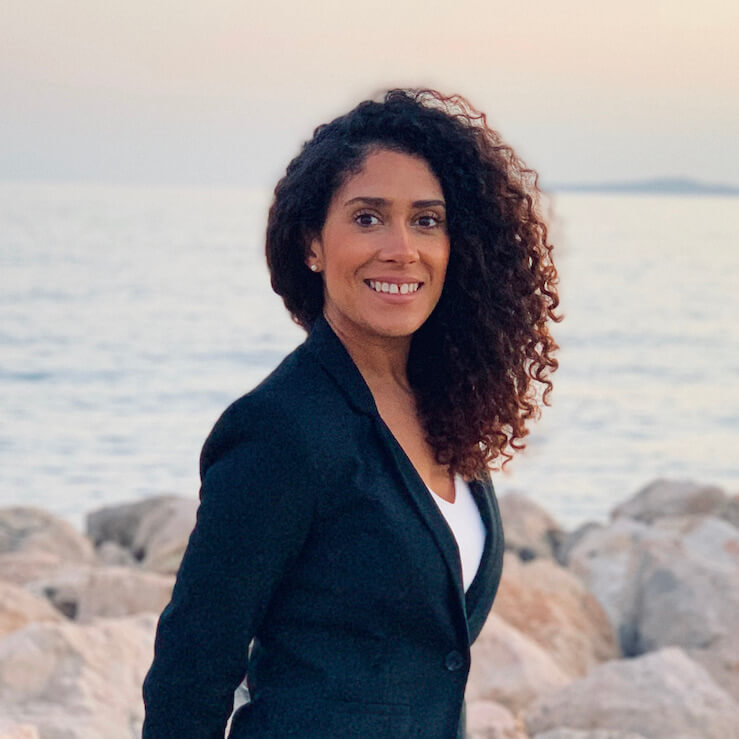We’re back, feeling (mostly) refreshed after the summer break, and we’re starting strong with a double interview just for you. We had the pleasure of speaking with Rachel and Holly, both partners in the real estate team at Cripps. Rachel made partner in 2022, and Holly joined the partnership in 2020. They share their journeys to partnership, discussing the challenges they faced, the skills they developed, and the lessons they learned along the way. For all our aspiring partners, keep reading, this is a good one.
Was there a moment when you knew you were ready to become a partner?
Rachel: I reached a stage where I was undertaking a team management and supervision role which was akin to or even beyond what some existing partners in the team were doing. Given my age at the time, I probably wouldn’t have gone for promotion to become partner unless it was recognised by other partners that I was ready for this next step and who encouraged me to submit my application for promotion.
Holly: The short answer is – no! When it was first mentioned to me that perhaps I would like to consider joining the Partnership I felt nothing but uncertainty. I thought I can’t be ready for this, surely?! I was pretty early on in my career in terms of post-qualification experience, and in my mind being a partner meant being technically excellent as a result of years of experience. But taking a step back, looking at my contribution to our team, my commitment to the business and our clients, and my enthusiasm to learn and grow I can see now it was the right time, and I am glad I took the plunge.
What are the top three skills you believe helped you most in reaching partner level?
Rachel: (1) Being receptive to change (2) Having a “can do” attitude (3) A good reputation, both within the firm and externally, as being someone who is proactive and responsive.
Holly: Energy, enthusiasm and a real passion for the work and the firm. I feel a huge sense of loyalty to my team and I have always loved the legal work, which is a big part of why I think partnership was identified as a route for me. It is so important when considering a partnership to ensure the culture and values of the firm are a fit for you, because without that it will be really difficult to maintain these things.
What BD or marketing tactics generate the most success for you?
Rachel: Building relationships with existing networks and, in particular, the next generation within client’s businesses whose careers are at a similar stage to mine.
Holly: Business development and marketing can be viewed as this formal, stuffy thing, but making connections with people outside of the deals you are doing is really enjoyable and that’s what creates the lasting relationships. I want to work with people who I get on with, and I am sure everyone feels like that, so making an effort to really get to know people, being personal, is where I find I have success.
What’s one tool or resource you’ve found invaluable for keeping track of business development opportunities?
Rachel: LinkedIn and Green Street News
Holly: Business development is everywhere, all the time. The most invaluable thing for me is always thinking about where that next connection could be – it might be speaking to a waiter while having dinner and it turns out they are planning to open their own restaurant. That’s an opportunity!
What changes have you noticed in your responsibilities or mindset since becoming a partner?
Rachel: A greater emphasis on leading by example and being aware of the influence/impact I can have on others.
Holly: I absolutely agree with Rachel. As a partner, you set the tone in the team, so you have to consistently show up and put others first. Suddenly rather than being led, you are the leader. That is a huge mindset shift.
“You soon realise that even your superiors still feel imposter syndrome at times.”
What personal qualities do you think are essential for a partner to succeed in today’s legal landscape?
Rachel: Having a deep understanding of our client’s business needs, the markets in which they operate and the challenges which they face.
Holly: When I started to explore the role, I focused on the three main elements to being a partner, and having these in my mind and working on them all the time is what has helped me in continuing to grow in the role. These are technical excellence, demonstrating business development and team management. Being willing to learn in all of these areas is essential.
Looking back, is there something you wish you had learned earlier in your career that might have made the path to partnership smoother?
Rachel: Having imposter syndrome is completely normal and actually quite healthy! You soon realise that even your superiors still feel imposter syndrome at times.
Holly: Definitely! That uncertainty I described was alleviated as I thought more about taking that next step in my career and talked it through with other partners, but it never really disappears. So long as I acknowledge and understand it, that’s part of what makes me hungry to always be improving. I also keep a little note on my phone so when I do something that’s particularly well-received or has pushed me outside of my comfort zone, I add it to the note. Then, when I’m feeling a bit unsure of myself I read it, and it gives me a boost of confidence to keep going for it.
What advice would you offer to someone aiming to make partner within the next year?
Rachel: Look at the requirements for promotion now and keep regular notes as and when you do something which you believe meets the necessary requirements to become a partner. This, in the long run, will make the application process itself quicker and smoother.
Holly: That’s great advice. It is so important that the emotive side of having what it takes for partnership – that energy, enthusiasm and passion – is aligned with the firm’s requirements in terms of practical things you need to demonstrate. I find it impossible to remember things I have done, so keeping track of these will be invaluable. Also, it shows a real commitment to your goal.
We recently worked on a pitch together, do you have any tips for successfully pitching to a potential new client?
Rachel: Have a joint strategy in how you will approach the pitch, who will cover what and who is responsible for which next steps.
Holly: I also think spending time reading between the lines in terms of what the client wants, looking at what tone they use, and what they identify as being important means you can pitch in a way that shows you are aligned in your values and approach.
The months leading up to Christmas are usually really busy for lawyers, do you have any tips on balancing the demands of work with maintaining client relationships while continuing to grow your practice, particularly during busy seasons?
Rachel: Plan ahead and make sure you manage expectations by communicating in a clear and timely manner with all those involved in the various client matters.
Holly: Planning is everything! I have lists of ongoing matters, target dates, weekly lists, daily lists – I couldn’t function without them! Communication is absolutely essential both with clients and your team, setting boundaries and understanding your own capabilities. Particularly when you are on the path to promotion it is easy to say yes to everything, but often that means you are giving less than your best just to keep all those plates spinning.
Rachel HoldawayRachel is a partner in the Real Estate team at Cripps, specialising in pharmacy, children’s nursery and education sectors. She regularly acts for buyers and owner/sellers of these types of businesses. |
|
|
Holly GoacherHolly is a partner in the Cripps real estate team, focusing on the healthcare sector and secured lending transactions. She also works with banking clients on secured lending matters, primarily in the healthcare and charitable sectors. |


